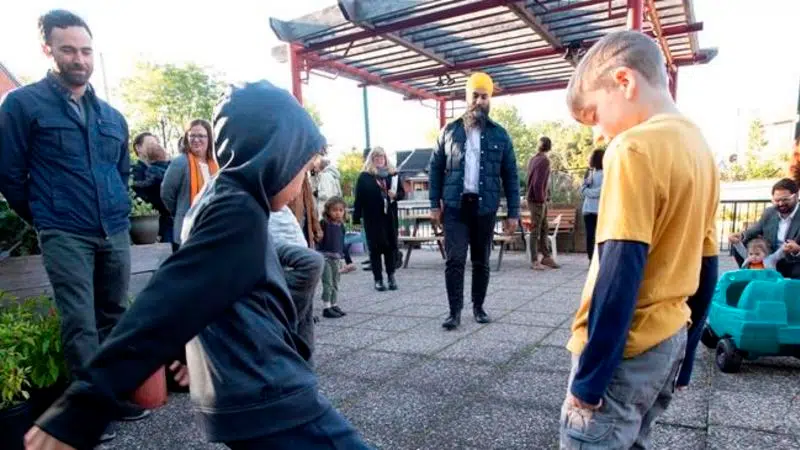
NDP’s Singh seeks urban support with housing billions, avoids deficit questions
OTTAWA — Jagmeet Singh continued his push to win progressive votes on Tuesday by promising an NDP government would invest billions of dollars in affordable housing to help Canadians struggling to make ends meet.
The commitment was the NDP’s latest pledge to expand social programs. The party’s promises have included universal pharmacare and free tuition for post-secondary education while promising higher taxes on large corporations and the wealthy.
Yet Singh also deflected questions about how and when an NDP government would tackle the federal deficit, saying only that he would make different choices from Justin Trudeau’s Liberals and that his priority is helping Canadians now.
“We want to take the budget very seriously, and we’ll look at what that means in the future,” Singh said during a campaign event at a non-profit housing complex in downtown Ottawa, a few kilometres from Parliament Hill.


